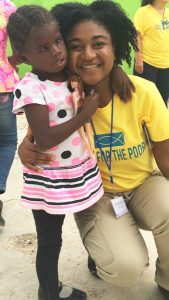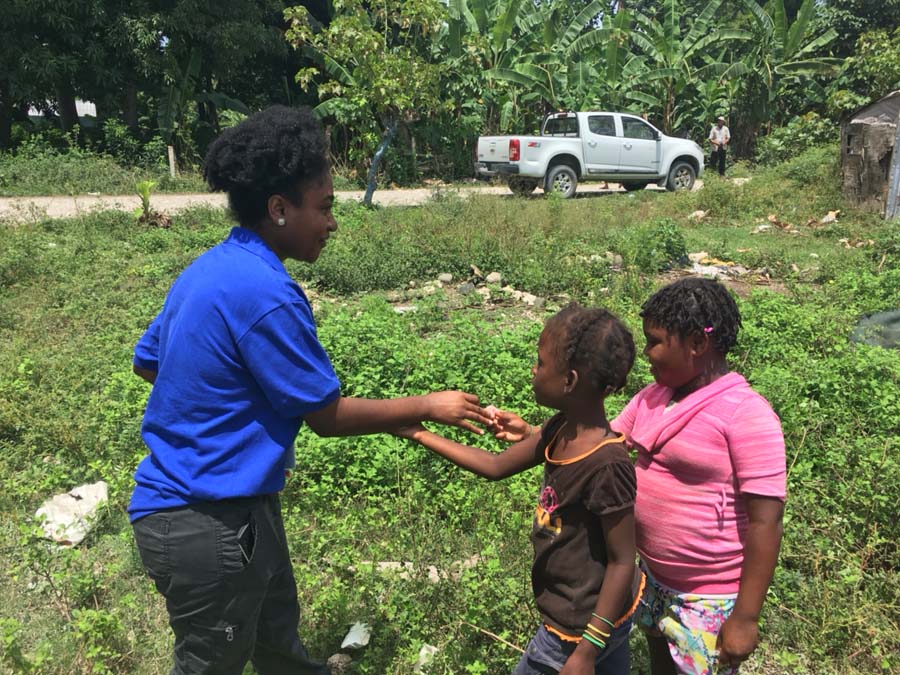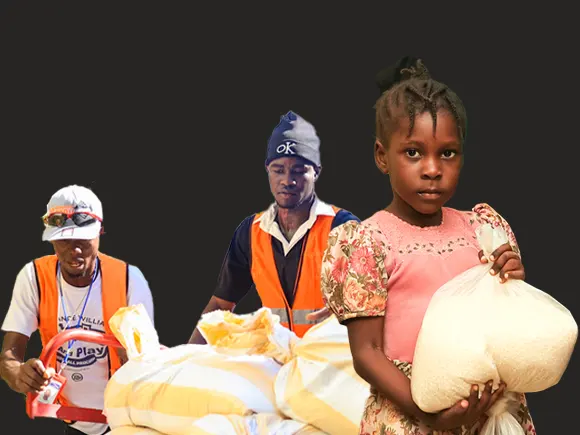Cassandra Celestin, a Special Events Coordinator at Food For The Poor, shares her experience upon returning to her home country of Haiti for the first time in nearly 16 years.
 Summer of 1999 was the most exhilarating and fun summer of my childhood. I had traveled to the United States to spend a few weeks with my cousins in New York. A year later when my parents told me our family would permanently relocate to the U.S., I was undoubtedly the happiest 10 year old in all of Haiti! However, something strange happened as the airplane flew off and I looked out the window at the country I was leaving behind. An unexpected tear fell down my face. That tear was a reminder of the great shift that was happening in my life. Now 26 years old, I had the opportunity to travel to Haiti through my work at Food For The Poor. I could not wait to go back and see the country I had not traveled to for nearly 16 years!
Summer of 1999 was the most exhilarating and fun summer of my childhood. I had traveled to the United States to spend a few weeks with my cousins in New York. A year later when my parents told me our family would permanently relocate to the U.S., I was undoubtedly the happiest 10 year old in all of Haiti! However, something strange happened as the airplane flew off and I looked out the window at the country I was leaving behind. An unexpected tear fell down my face. That tear was a reminder of the great shift that was happening in my life. Now 26 years old, I had the opportunity to travel to Haiti through my work at Food For The Poor. I could not wait to go back and see the country I had not traveled to for nearly 16 years!
Upon arrival, I felt like a visitor. But it did not take long for a deep sense of connection to begin to rekindle in my heart for my country and for my people. Our bus passed through areas in Port-au-Prince I used to frequent as a child. However, it was not until we visited an isolated village in the district of Thomazeau that I understood firsthand what the poor of Haiti really go through. As we drove back from what seemed like “the middle of nowhere” I thought about the children I saw walking with no shoes and no bottom wear, women forced to shower in the open road, communities with no schools or hospitals, etc.
The visit to Thomazau enabled me to understand what I used to see as a child. I recall vividly women carrying basket of candles on their heads and roaming back and forth down the street screaming on the top of their lungs “Balaine, balaine, balaine,” which means “candles, candles, candles.” This would go on for hours as the merchants tried desperately to get residents to come out and buy candles to prepare for nightfall. Now I know that the women selling candles and many other merchants I use to see very likely have had no education, have been out in the sun all day and will continue selling until the late evening. They had to walk for miles to get to the city or to a location where there would be potential customers with the means to buy their goods. And even with all of this effort, they would not make nearly enough to provide for themselves and the children they left behind. I now understood that these merchants are a portrayal of generations of poverty handed down to them.
As I looked out the window and saw a “chanye,” a shoe cleaner. It hit me that this man who looks to be in his 50s has very likely been cleaning shoes his entire life. I could not help but notice that he was wearing beat down, dirty dress pants and a dress shirt as he carried his shoe cleaning case. It is as though he wanted to feel a sense of value and honor in what he is doing for living – he dressed up for work – he dressed up to go clean shoes.
Tomorrow, we will share part two of Cassandra’s Journey Home to Haiti.


